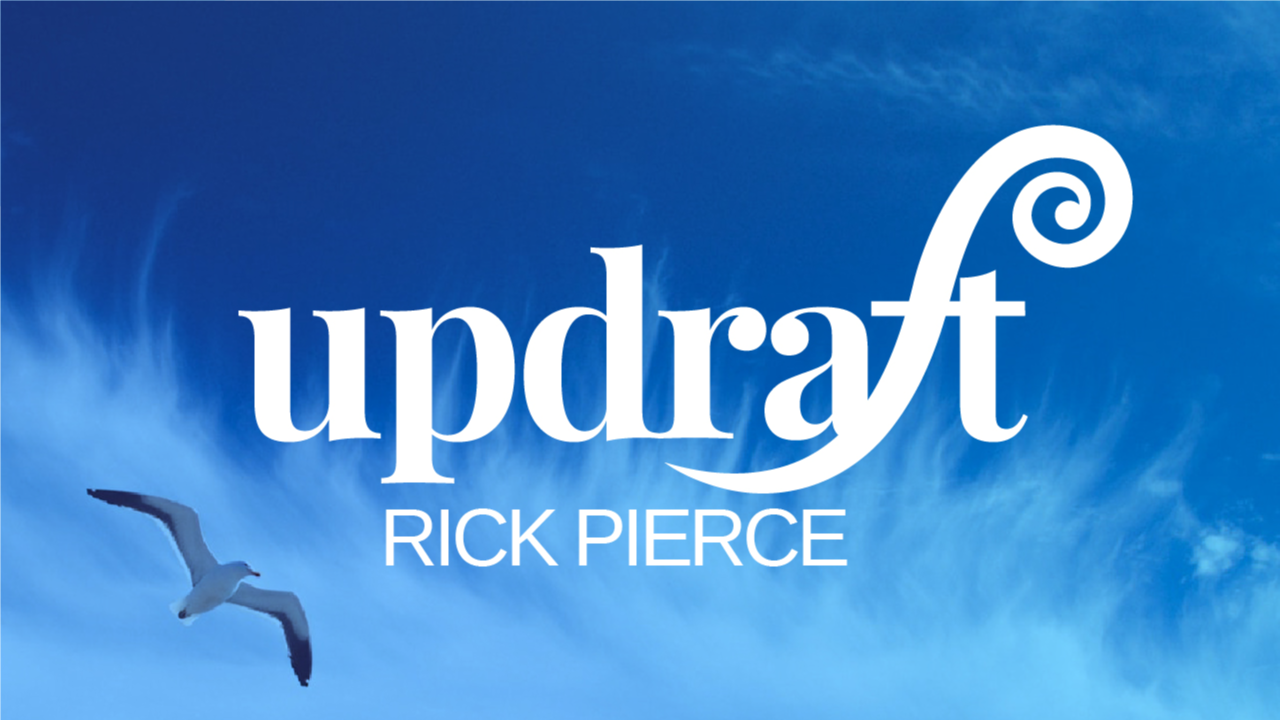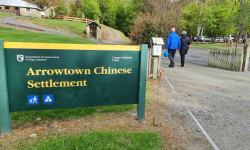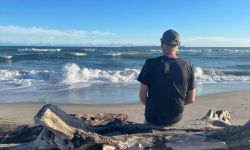
An ‘updraft’ in meteorology characterises a storm’s early development as warm air rises, eventually bringing the rains that offer sustenance and life. Rick’s hope for this monthly updraft column is for it to be a catalyst for change, ultimately contributing to the transformation of our faith communities. This regular column first appears in the Northern Baptist Association monthly newsletter, ‘Northern Lights’.
In last month's Updraft, we focused on the importance of reconnecting with one another, both individually and communally, to help re-establish health and vitality to our Baptist movement in which we're aligned and journeying together. We also raised a couple of questions to reflect on how we're currently relating. If you missed the June edition of Updraft, you can see it here.
As we look at re-envisioning, strengthening, and growing our relational networks across our region, I'd like us to consider four different ways we can be intentionally 'walking together.'
Clusters defined by points of commonality
This is in large part representative of the current cluster set-up, which is groups of Pastors gathering monthly, usually sharing lunch, for a variety of purposes (such as fellowship, discussions on church-related issues, sharing leadership challenges, praying for one another etc.). The clusters are based on geographical location (i.e. South, North, East, Far North, Mid-North), role/size of church (i.e. Senior Pastors, Sole Pastors and Associates), or ethnicity (Chinese, Samoan, Korean), or generation (i.e. youth, children and families).
Such clusters recognise the importance of gathering with like-minded, mutually shared connection points. These points provide a sense of mutual understanding of experiences and the unique challenges and situations that arise from those points of commonality.
Networks connecting leaders from across our region (defined by being Baptist)
On a bi-monthly/quarterly basis, we will look to create additional space for networking and conversation with leaders across our Baptist faith communities, whether Pastors, Chaplains, Elders, Governance Team members, CEOs, or Missional Leaders. Within our region, leadership, diversity of histories, identity, cultural values and beliefs combine to influence how we all see and experience the world. When our diversity can be expressed, acknowledged and valued in spaces where we are participating in critical conversations, we will all experience ongoing growth. This draws us together in appreciation and love for one another and helps shape the future of our movement in new ways.
Such networks would reflect our ethnic, generational, gender, and socio-economic diversity and help us build connections and engagement across historical boundary lines. These networks would help us embrace our diversity and become richer and fuller in the process.
Church Pastors, Governance Teams, and Staff walking with those in other local Baptist churches and faith communities
Here we start to connect churches in a locality for learning and growing with one another and for shared engagement with the wider community. With the issues we encounter in society today, no one organisation, no one church can solve or even make a significant impact on those issues while continuing to operate independently. What would it look like for Baptist Churches in the same locality to enter a covenantal relationship? As covenants are formed, what does it look like for the Pastors/Governance Teams and Staff teams of those churches/faith communities to journey with one another?
Such covenanted relational communities start to recognise the importance of us all being part of Christ's one body, sharing in his life and expressing that unity through the love and grace we extend to one another.
Leadership Development networks for church/faith community members
One of the key conditions considered necessary for becoming thriving faith communities is Robust Leadership. Within our churches are many with leadership gifts and responsibilities that contribute to society's wider social fabric. How do we start to connect those people in covenant relationships to grow leadership and help them be more effective at bringing gospel renewal in the work/social/sports communities they are involved in relationally day-to-day? Perhaps having a common area of leadership development to focus on will be the connection point beyond the shared identity of being Baptist. With the development of technology, these networks don't need to be meeting physically, which expands the reach and possible connectivity.
Such networks will provide opportunities for people within our Baptist movement to connect across faith communities to grow robust leadership.
Considering these four possibilities for enhancing the way we walk together, let me ask again the two questions I invited us to reflect on last month:
How am I (as a leader / Pastor / Chaplain / Elder / Church or Faith Community member) relationally connecting with others across our collective of Baptist faith communities?
How are we as a Baptist Faith Community relationally connecting with other Baptist Faith Communities and ministries?
To bring gospel renewal to our local communities, our collective of Baptist faith communities needs to develop relationally across our region so we're walking together more strongly and effectively. How we all individually choose to do this will make an exponential difference to us all. Can we encourage you to reflect again on those two questions and perhaps look at engaging in new ways through one of the four possibilities we've outlined? If you'd like support on how to go about that, feel free to get in touch. As members of God's family, walking together becomes vital to bringing gospel renewal. May we actively choose to embrace that journey as we also experience the freedom of the local church that comes through our Baptist way of being. We really are better together!
Rick Pierce is Minita-a-rohe mō te Hauoratanga me te Whakawhanake, Network Pastor, Health and Development, Northern Baptist Association. You can contact Rick by email: [email protected]
For more editions of Updraft, click here.


